




Dear Reader,
With immense pride and gratitude, we present to you the ninth edition of Descent: Superbloom.
This theme emerges at a fitting time of transformation and renewal. As the season changes, Descent Magazine also turns a new page. The world is changing, and so are we. As your new chief editorial team, we step into this role with reverence for those who came before us and excitement for the journeys ahead.
The designs and writings we’ve curated for this issue explore the tension between preservation and progress, between honoring our roots and embracing change. The strange and the familiar, the self and the world, the new and the old.
We extend our heartfelt thanks to our advisors Isabelle, Marissa, and Z, whose guidance and vision have been invaluable as we’ve cultivated this collection. Their wisdom has helped us tend to both the legacy of Descent and the fresh perspectives we hope to bring. We would also like to thank our sponsors Kace Tea, Kaya Press, APASA, and Good Light.
As you turn these pages, we invite you to consider: How will you grow? What seeds lie dormant in you, waiting to bloom?
Once again, thank you for trusting us with this magazine and this mission. We’re honored to grow alongside you.
Sincerely,


Sammie Yen Chief Writing Editor
Lynn Wee Co-Director of Visual Design

Stella Vu Co-Director of Visual Design

Jasmine Wan Director of Art & Multimedia


94 Roadtrip to the End of the
Case Notes From the Great
Stella
Lynn
Michaela
Cici Fang & Robynn



Writing by Sammie Yen
Design by Stella Vu
Concrete meets carefully manicured roses in the heart of Los Angeles.
Exposition Park is a living archive of the city’s complex relationship with land, memory, and identity. What was once Agricultural Park transformed into a symbol of civic pride with its sunken rose garden, museums, and sports venues. This transformation mirrors the cyclical nature of a superbloom: dormancy followed by spectacular awakening, vitality emerging from suppression, visibility after erasure.
Before it became Exposition Park, the 160-acre tract served as Agricultural Park, established in 1872 just beyond the original boundaries of Los Angeles. The land carried contradictions from the beginning. Located just outside the city limits, it became a haven for activities banned within Los Angeles proper. As one source describes, “the park welcomed thousands of men and women of all classes looking to have a good time, and the speed freaks, bookies, prostitutes and jockeys who worked the park were happy to ensure they did.”
This history reveals how land on the margins becomes a repository for both sanctioned and unsanctioned activities. As urban growth surrounded Agricultural Park, pressure mounted to “clean up” the space. William M. Bowen, a prominent Los Angeles attorney and the “Father of Exposition Garden,” campaigned for the city to annex the park and outlaw gambling. This effort culminated in the park’s transformation and reopening as Exposition Park in 1913.


The transformation included replacing the racetrack with a seven-acre formal sunken garden originally designed to showcase California wildflowers. By 1926, this evolved into a rose garden – the largest in the country. Over 100 varieties of roses were planted.
The shift from native wildflowers to cultivated roses symbolizes a particular aesthetic preference –one that favors orderly, controlled beauty over the chaotic vitality of indigenous plants. In this way, the land itself became a canvas for projecting specific cultural values, suppressing some forms of growth while promoting others.
The transformation represents a form of civic gentrification – the “cleaning up” of public space to align with particular visions of respectability and order. Just as the modern-day rose garden requires constant maintenance to keep it blooming in orderly patterns, the sanitized history of Exposition Park requires ongoing cultivation, with certain memories suppressed while others are brought to the surface.
The patterns of growth and suppression at Exposition Park reflect broader cycles


in Los Angeles. The land that became Agricultural Park was initially part of the Mexican-era rancho system before passing into the hands of American landowners eager to profit from Southern California’s fertile soil. This transfer represented one cycle of displacement and transformation, as the Spanish and Mexican land use patterns gave way to American agricultural development. By 1911, the park was “finally scrubbed clean” and renamed Exposition Park, dedicated to the “perpetual enjoyment of the people.”
But which people? –
Today, South Los Angeles is experiencing what might be called a gentrification superbloom—a rapid transformation driven by major development projects. In Inglewood, the Rams and Chargers now play at the impressive So-Fi Stadium, the Clippers moved into the futuristic Intuit Dome, and the renovated Kia Forum hosts many of the biggest performances in the city. In Exposition Park, George Lucas’s Museum of Narrative Art is getting ready to open in 2025.
These developments represent new growth, but they also raise questions about who benefits from this transformation. The complex interplay between revitalization and displacement creates what they call “the space
in between,” or a fraught space between the haves and have-nots, between revitalization and displacement, where human agency and community organizing can create real power.
The name change from South Central to South Los Angeles in 2003 exemplifies this tension. For some residents, removing the South Central name meant removing “a tarnished reputation and history.” For others, particularly long-term residents, “this was another stage in displacement, an erasure of our home as we knew it.” As one local puts it, “South Los Angeles is an attempt to clean up an image that resulted in the displacement of people.”
Largely absent from the documented history of Exposition Park are the Indigenous perspectives of the Tongva people, whose relationship with this land predates all others. Before it was Agricultural Park or Exposition Park, before it hosted races or roses, this land was part of Tovaangar, the Tongva homeland that encompassed the Los Angeles Basin.
The guiding questions for exploring a superbloom in the context of Indigenous perspectives invite us to consider: “How does land carry memory, resistance, and identity, particularly in a place like Expo Park?” and “What does a Superbloom look like in the context of Indigenous perspectives, urbanization, and the layered histories of Los Angeles?”


For Indigenous communities, land carries stories, cultural practices, and spiritual significance that persist despite attempts at erasure. The transformation of native landscapes into manicured gardens represents not simply an aesthetic choice but a form of cultural suppression. Yet Indigenous relationships to land also model resilience—the capacity to endure, to adapt, and to rebloom even after periods of dormancy.
What would a superbloom look like in Exposition Park that honors its layered histories while allowing for new growth? Perhaps it would begin by acknowledging the land’s past and present Indigenous stewards. Perhaps it would incorporate native plants alongside the beloved roses, creating space for wildness within the orderly design. Perhaps it would include comprehensive affordable housing strategies to ensure that local residents can remain in place to witness the transformation.
The superbloom serves as a powerful metaphor for urban transformation—rare, spectacular, and emerging from dormancy after a long dry spell. But unlike desert wildflowers that bloom and fade according to natural cycles, urban development requires intentional human choices. Who gets to plant the seeds? Who decides which blooms are valuable and which are weeds to be removed? As new development projects continue to transform South Los Angeles, the question remains.
Can the area experience a superbloom that benefits existing residents rather than displacing them? Can the rich cultural soil of this community nurture new growth while preserving its roots?


The story of Exposition Park offers no simple answers. But it reminds us that land carries memory, that suppression often precedes new growth, and that true flourishing requires honoring the full spectrum of histories that make a place what it is.
In the contested space of South Los Angeles, where gentrification threatens displacement but also creates possibilities for renewal, the superbloom remains both promise and challenge still taking shape.










Black soil unburied bodies
Life is there, and then it’s gone, and the whole world smells of hot asphalt, old wine, flesh. The oceans are turn-over emptied but the skies are full, cleave open and baptize this gore-sodden ground.
A late spring made to bear new fruit
A postmature and overripe harvest, spotted with bruises and soft all the way through. Their skin is cold, but the earth is warm, and there, there, the world is still new again.
Soil black with buried-unburied
There and then gone immolation fermentation extinction
The ocean is an empty cup and the sky is turn-over full with a biblical generosity
Late spring heavy and thick with old fruit
Flesh ripe-over tender and bruise-spotted and soft all the way through Cold skin in warm earth
There again there
black buried-unburied soil there gone burnt sour waiting oceans turned over skies over turned pouring into a late spring an icu of the overdue sagging with new-old fruit reaping flesh tender soft and bruised thoroughly through rise from the womb-warm earth into the there-there
blackened burnt buried bleached graspless goodbyes goneby pestilence permeating pungent openings overhead orchestrating over overdue seed sodden spring shrieking slickly fetid fetal flesh finding fresh form forfeiting festering fat womb-warm waiting waiting waiting there! there!













youth is prime time for blooming














Written by Armaan Kapoor
Design by Lynn Wee

IIn the house where Ravi grew up, colors did not simply exist; they breathed, they remembered, they chose. e ochre that warmed the thresholds stirred with the rst rays of dawn, inhaling golden light and exhaling hushed promises. e deep indigo of the study whispered secrets into the oorboards, its glow pooling like ink in the grain of the wood. And then there was the emerald—the shade of fresh-cut pandan, of the monsoon-fed river beyond the garden wall. It chased amber through the halls, twining and untwining in an endless waltz, slipping beneath doors, curling around banisters like a living thing.
His grandmother saw what others did not. “ e house chooses its keeper,” she told him when he was ve, pressing his small hand against the balustrade, where the green light curled like a cat against his ngers. By ten, he could summon slivers of aquamarine to icker in the air like re ies. By sixteen, he had learned to read the language of light—the way the amber ared when a guest with ill intentions crossed the threshold, the way emerald would pool at his feet when he stood too long at the window, as if to remind him: You belong here.
e house had stood for generations, rising from the earth like an artifact halfremembered. It did not obey the strictures of blueprints. Rooms stretched to accommodate
joy, contracted in grief. e tiled corridors lengthened on monsoon evenings, inviting the storm to press its cool breath against the shutters. And always, the colors moved, shi ing with the rhythm of the household’s breath.
On the morning of his twenty- h year, Ravi woke with green pooled beneath his ngernails. He stared at his hands, the emeraldglowclingingtohisskinlikememory, like prophecy.
“It is time,” his mother murmured over breakfast, her voice careful. “ e house knows before we do.”
He had known this moment would come. e house did not hold its children forever. It opened its hands, let them slip between its ngers like sand returning to the shore. His grandmother had told him stories of the others—the cousins and aunts and ancestors who had carried its light elsewhere, planting its essence in foreign soil.
But knowing did not make leaving easier. When he turned back for a nal glance, the house stood quiet, the colors dim, waiting.
Weeks later, he stood before an apartment that smelled of fresh paint and unfamiliar air, high above a city that did not yet know him. e walls were white—stubbornly so. e oors did not creak with history, nor did the light icker with hidden voices. Silence settled heavy on his shoulders.

ed back to its sphere. But by dusk, amber had arrived. It spilled onto the windowsill, spreading boldly, racing up the walls before vanishing in ickering pulses.
Change was slow, then sudden. e scent of cardamom clung to his morning tea. e hallway narrowed when he rushed,



he had pressed his palm to the doorframe. It was neither the house’s emerald nor its amber, but something entirely its own. e rst breath of a new inheritance.
And on the longest night of the year, when he le his door unlatched as his grandmother’s letterhadinstructed,theemeraldlightpooled atthethreshold,waiting. ewallsstretched. eairshi ed.Andwhenthedawncame,the apartment had rewritten itself, folding the old world into the new, threading memory into the bones of what was still to come.



Choosing to eat out invariably means deciding between three-course meal and finger food, drive-thru and sit-down diner. At Kuya Lord, however, that decision never comes up. Serving regional Filipino dishes since its pre-pandemic pop-up days, Kuya Lord blends a versatile dining experience with Chef Lord Maynard Llera’s revamped traditional recipes. First birthed in Llera’s own garage, Kuya Lord skyrocketed in popularity and has been racking up awards and rave magazine reviews ever since. The q1 brick accents, exposed ductwork, and window into the kitchen give it a workshop feel, with whimsically cut wooden tables to match. It’s small, so the place feels full and lively throughout the whole meal despite most customers ordering takeout.
We ordered a lucenachon rice bowl, which was slow-roasted rolled pork belly that came with java garlic rice, tomato cucumber salad, pickled green papaya, and a sauce cup of vinegar. The color palette of the dish alone was breathtaking (it quite literally had every color in the rainbow) but paled in comparison to the savory aroma of garlic, crisp crunch of cucumber, and tender bites of pork belly. It’s safe to say Kuya Lord is doing some serious heavy lifting when it comes to establishing Filipino cuisine as a contender for the ultimate go-to cuisine.
Far from the giant toris and buzzing shopping districts of Little Tokyo is an unassuming Japanese restaurant hung with red lanterns, stuffed with knick knacks, and hiding a library’s worth of history. Established in 1956 under the name Otamo Sushi Cafe, Otomisan Restaurant remains the last Japanese restaurant in Los Angeles’ Boyle Heights neighborhood. Otomisan is currently operated by its fifth generation of owners, a brother-sister duo; Boyle Heights, they revealed, was one of the only places that allowed Japanese people to buy houses during the internment of Japanese-Americans during WWII. Inside, figurines, lacquerware, tapestries, and photographs hug every inch of wall space not taken up by the TV and magnetplastered fridge. It’s like stepping into a grandma’s house—there’s no rush to finish and leave. In fact, the old-timey grandma’s house vibes seem to make time stand still, if not reverse.
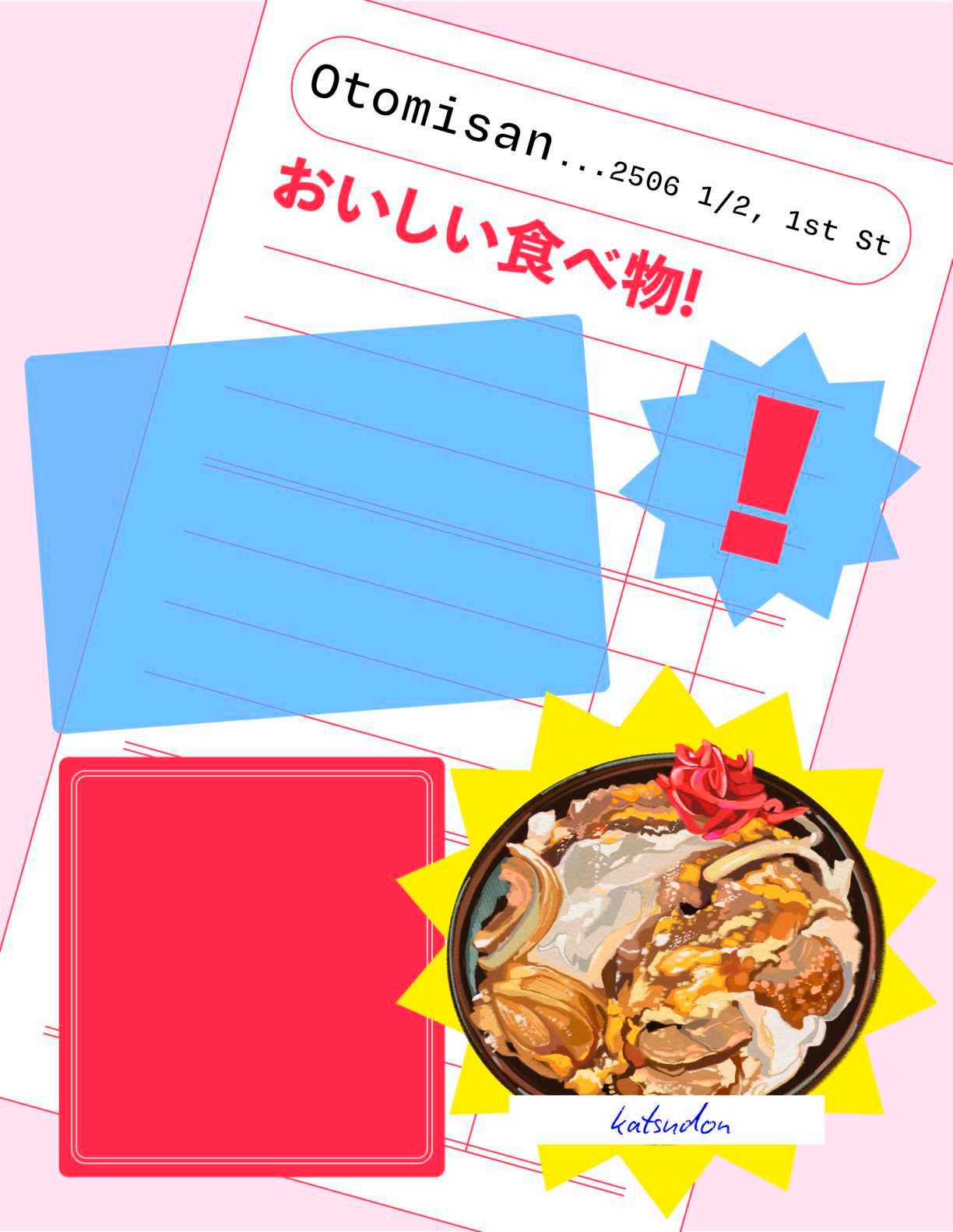
-Otomisan meaning: a girl’s name. A japanese song. Don’t know if it has actual meaning.
-Majority of regulars who come to eat are very supportive. I was worried that if they didn’t see Yaya here they wouldn’t want to eat here anymore, but it was the opposite.
-Goal: keep the cuisine flavor the same, but also eventually make things more secure. Get better lighting and fix the outside sign. Would like to have a tempura station!

It’s not often that the first thing you notice about a restaurant is the walls, but it’s even less common for those walls to be the exact shades of yellow and green they use for those lemon-shaped lemon juice bottles, down to the hex code. Off to one side, half a dozen glossy rotisserie ducks hang from a metal rack in front of the counter, and there are at least three different styles of chairs to choose from. This is Roast Duck by Pa Ord, a Thai roast duck restaurant on Hollywood Boulevard that opened in 2024.

Nestled in a cozy corner plaza of Culver City is Mayura Indian Restaurant, a warmly-lit South-Indian restaurant established in 2003. Owned and operated by smiling, sari-clad Padmini Aniyan and her husband, Mayura combines traditional family recipes with a commitment to inclusivity, as reflected in its array of vegan, vegetarian, and gluten-free options. This accessibility is par for the course considering Mayura’s mission of sharing Kerala dishes with not just the local Indian community but any open-minded restaurant-goer that enters through its doors.
“So Indian food is all over, but our food is very unique, so we want to do something very unique. And our food, we use a lot of spices, like a cardamom, cinnamon, flour. Charan is like that, because Kerala, where we are from, is very well known as spice cultivation, and we get all the fresh ingredients from the cultivators. So we definitely get it from India. Really makes a big difference. Yes, the quality. You have to keep the quality at top notch.”
- Mayura Chef

Koreatown’s Liu’s Cafe combines influences from Taiwan, Shanghai, and Hong Kong to offer a diverse range of both Chinese dishes and Western dishes with local twists. Of the latter, what stands out most is definitely the Hong Kong-style French toast, a dish introduced by the British during their colonization of Hong Kong and eventually localized into the version served at Liu’s Cafe today. The first bite starts with a crispy mouthful of fried toast, rapidly followed by a deluge of the most velvety lava custard. This is it—this is the moment that makes the 20-minute drive in LA morning traffic all worth it. And if that’s not enough flavor for you, it’s also served with brown sugar syrup, maldon salt, and a square of butter. Perhaps in defiance of its repressive colonial origins, this toast defies cultural culinary boundaries for a simply scrumptious result.

On the highest floor of an empty parking structure stands a girl holding a carton of eggs. When I find her, she’s facing a wall stained with yolks like runny stars, and if stars could bleed, she could be one.
The girl takes an egg and the shell screams when it shatters
Then she pauses, as if someone only she can hear is whispering to her: “A woman is an inverted triangle,” and it’s so loud that everyone in the world is listening in. Even her father, who wears a pinstripe suit and stands on the top floor of some highrise, can only laugh,
as he does at jokes he doesn’t understand.
I cough. She turns.
Her gaze is soft, but it carves me like a knife, or maybe
it’s her body that’s the knife: two-dimensional with these jagged edges. Her skin is the color of silty sand or overcast sky or too-wet watercolors.
it’s the color of all the colors mixed together; her lips, I know, taste like cinnamon Altoids. Her breath will smell of hydrochloric acid spiked with Malibu and cherry Blistex. Two eyes like new moons.
Once, she told me that in some places they serve scrambled eggs with diced cactus paddles.
(She’d read it in a book, so it must be true, along with sand salad and jackrabbit jerky.)
The thought was striking to her. It conferred some sort of universal truth regarding



She is not beef noodle soup with cilantro, Pork cutlet, or green onion pancakes— she is not even perfectly fluffy blueberry waffles, acai bowls with peanut butter, and she is most definitely not cactus scrambled eggs.
Written By: Caroline Li
Design By: Bella Murray
The State Of Things. Because if a desert can feed you, maybe you can starve yourself.
It was hard to understand; I think that was the point. I asked her if she could ever kill a jackrabbit. She said it was probably easier than it sounded.
On the highest floor of an abandoned parking structure, I ask a girl what a woman is.
She whispers, “A woman is an inverted triangle,” and I, a trapezoid, want to ask if she is also a square and a rectangle or a pear and an apple, or half a cucumber, ice cubes, a single almond.
Because all I know is that a woman is not penne with vodka sauce or mango smoothies









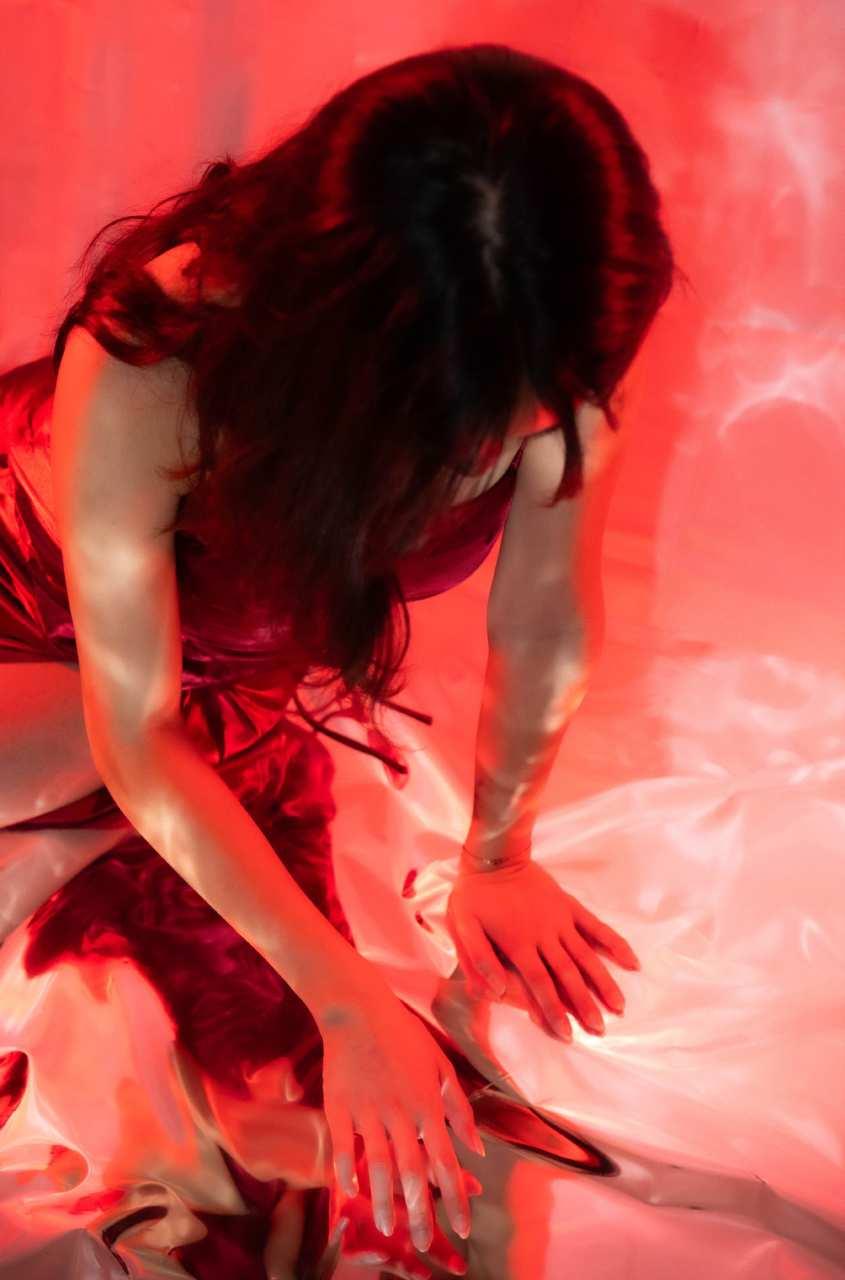

花の陰赤の他人はなかりけり
Under the cherry blossoms there are no utter strangers

— Kobayashi Issa
Writing By Sisi Li

In this life, Haruka meets Ren in the park. It is spring, and Haruka’s home, Kyoto, unfurls into the warmer weather with open arms. The city hums with life, as locals and tourists alike admire the dusting of pink petals that have scattered themselves upon the streets. Wandering in Arashiyama Park, with his Canon AE-1 in hand, Haruka can barely make ten steps down the path without pausing to take photos of the blossom-laden branches above, swaying gently in the breeze.
Cherry blossom season never lingers long—barely two weeks at most—but it compensates for its transience with extravagance. Eyes glued to the trees, Haruka raises his camera to take another picture. Only this time, as he clicks the button, a person stumbles into the frame.
Snap. Haruka lowers his camera.
“Sorry, did I ruin your shot?” the stranger asks, his voice a mix of concern and embarrassment. At first glance, Haruka thinks this man must be somewhere in his forties, wearing a button up shirt and carrying a leather work bag that looked like it could fall apart any second.
“No, not at all,” Haruka assures. “If anything, it looks more interesting this way. See.” He turns the camera to show him. The stranger leans forward, eyes focusing on the small screen intently.
“Oh, it is a good picture,” the stranger admits after a beat, with a self-conscious smile. Haruka laughs, despite himself. “Are you a photographer?”
“Not yet,” Haruka replies. “But I want to be! I do street photography, mostly. I’m still in school, but I’m trying to build my portfolio.”
“That’s really cool,” the stranger says. There is no exaggeration to his words, just sincerity. “I hope it goes well.”
Smiling, Haruka bows in thanks. The stranger returns the gesture. Sensing the conversation’s natural end, Haruka shifts his camera between his hands, ready to continue walking. But before he can, a strange sense of déjà vu surges through him, tugging him to stop, to
speak.
“Have we met before?” Haruka asks, abruptly. “Wait. Sorry, scratch that. I mean—do I know you, from somewhere?”
At that, the stranger laughs. The sound echoes, shrinking the distance between them like a bridge.
“I don’t think so.” This time, the stranger’s smile is apologetic. He turns his gaze upwards. “But the blossoms have that effect on people, don’t they?”
When they continue on their paths again, in opposite directions, Haruka lets his head turn around, just once. Just long enough to let his gaze fall on the sight of Ren’s back, his silhouette retreating in the distance.
In a past life, Haruka and Ren take turns weeding the garden bed.
Bored and itching for an excuse to leave the house, Haruka had started volunteering at Kyoto Botanical Garden two summers ago, where he quickly learned that gardening was not the easy summer job he thought it would be. It was here where he met Ren, an aspiring arborist, who had been volunteering at the garden every summer since he was fourteen. Now, at sixteen and eighteen respectively, the pair had figured out the optimal routine at which to work the beds with most efficiency. Still, that didn’t mean the actual weeding became any easier.
“If I see another weed, I will catapult my hoe into the next dimension,” Haruka declares, flopping down onto the open grass. His overalls, once green, are now splattered with dirt, and his hat lies askew on top of his hair. In the oppressive midday heat, Haruka could barely glance at the sky without seeing white—but at least the surrounding flora takes it in stride, as the flowers seem to positively glow in the sunlight.
“Well, try not to hit the picnic basket at least,” Ren replies, with an air of infuriating ease.He has propped himself comfortably against a nearby tree, where they had laid out Superbloom

a gingham blanket an hour ago. “And check the bed of tulips behind you. You missed a couple.”
Haruka groans. Still sprawled on the dirt, he waves the hoe in Ren’s direction threateningly. “Listen here, big-shot. Just because you’re in college now doesn’t mean you can boss me around. We have a deal, remember? It’s your turn in fifteen minutes.”
“Yeah, in fifteen minutes.” Ren remains unfazed, stretching his arms back. “Until then, it’s all you, buddy.”
Grumbling, Haruka goes back to weeding. If he whispers several foul names under his breath all the while, that is none of Ren’s business.
Once his time is finally up, Haruka marches over to the picnic blanket, where Ren stays lounging, arms slung over his eyes. Without speaking, Haruka plants himself down beside him. Ren doesn’t stir. Haruka tugs off a glove, before sticking his hand into the picnic basket. He pulls out the first food-shaped object he feels, and jams it in his mouth.
Wake… up… garden boy,” Haruka manages, between chews.
Ren opens his eyes. His mouth twitches with faint amusement. “I thought you didn’t like my egg sandwiches.”
Still chewing, Haruka shrugs, gesturing at Ren with his hoe. Blade first, obviously, so he doesn’t get the wrong idea. “It’s an acquired taste.”
In a past life, Haruka and Ren live two doors away from each other.
Haruka has just moved to central Kyoto, trading the peaceful suburbs for a shorter commute to an indie game studio, where he works in visual development. His new apartment complex is pristine, but thoroughly uninteresting— with a singular, tiny elevator that moves about as quickly as Haruka’s grandmother, and floormates that, for the most part, have remained indistinct figures, with names that Haruka still can’t quite call to mind. Well, all except one.
“Hello, can you hold the elevator?” A bodiless voice calls out from down the hall. It is
a quarter past seven in the morning and Haruka, oblivious to the plea, continues blasting punk rock through his earphones in an attempt to shock himself awake.
The voice grows louder. “Wait!” Haruka finally raises his head. He catches sight of Ren, the twenty-something architect living down the hall, rushing towards the elevator. Ren’s brows are furrowed in frustration, and the contents of his messenger bag are spilling out against his hip. Just as he makes eye contact with Haruka, the doors slide to a close.
“Oops,” Haruka says aloud, to the empty elevator. “Sorry.”
By noon, the moment had left Haruka’s mind entirely. That is, until the following morning.
After sleeping through two alarms, Haruka is running late. He stumbles out the door, his shoes only half-on. From a distance, he hears the tell-tale ding of the elevator.
“Hold the elevator please!” Haruka calls, without looking up. He ties his laces with fervent speed. “I’ll be there in ten seconds!”
Still preoccupied with his shoes, Haruka glances upward—only to see Ren step inside the elevator, the doors sliding shut behind him. “I said, ten seconds!” Haruka exclaims. All he gets is an irritated echo of his voice in response.
It becomes a routine, of sorts. A petty game of pride played out over the weeks: Haruka sets more alarms, determined to beat Ren to the elevator. Ren, in turn, seems to time his departures with uncanny precision, catching Haruka on his off days.
Two weeks later, on a particularly frantic morning, they arrive at the elevator simultaneously. Both are slightly out of breath. Haruka’s laces are untied. Ren’s bag is loose and open. Ren moves first. He hesitates, before reaching forward and pressing the elevator button. Haruka clears his throat. Standing beside each other, they wait for the elevator to reach their floor, the seconds stretching out

like an uncomfortably tight rubber band. Ding!
“After you.” Haruka breaks the silence with dramatic politeness, gesturing towards the open doors.
“No, please, I insist.” Ren mirrors his motion, bowing even further.
For a moment, they are statues of forced courtesy, frozen in stand-off.
The elevator doors begin to close.
In shared panic, they both lunge forward, awkwardly squeezing through the narrowing gap at the same time.
When the doors finally shut, Ren bursts into laughter. Haruka follows suit. Their guffaws reverberate, shaking the entirety of that ridiculously small elevator—and as the floor numbers wind downwards, any tension developed between them in the last few weeks slowly disperses, like pollen in the wind.
Steadying himself against the wall, Haruka wills the air back into his lungs. “It’s Ren, right? I’m Haruka, by the way.”
“You think I wouldn’t know the name of my arch-nemesis?” Ren smiles wryly. “But yes, I’m Ren. It seems we got off on the wrong foot.”
Haruka nods, chest still shaking with laughter. “You know, I was worried we would be stuck in this cycle forever.”
Ren’s gaze is as dry as a withered leaf. “Yeah, I think we’re far too late for that.”
In many lives, Haruka and Ren are not human at all.
In the forest, Haruka, with wings, takes to the skies. Ren, with roots, watches from below.
In the river, Haruka leaps and bounds downstream. Ren lets him pass, the flowing water bending around him.
In the music, they take turns leading the rhythm.
In the painting, they blend to create new hues.
In the stars, they chase each other through the vastness of infinity.
In many lives, there are not always words to describe what they are. But in every lifetime, Haruka knows. Ren knows.
So, it seems the story always begins like this—the making of a friend. There is no other version of this story; there are a thousand versions of this story.
In Haruka’s first life, he meets a boy under the cherry blossom tree.
A week has passed since kaika, meaning today brings the first day of mankai. The morning air is crisp, and Haruka is sprinting down the streets, towards the grove, where the cherry blossom trees await. It’s a one-sided race—his opponent, the sun, is remarkably unaware, stretching and yawning across the horizon.
In this life, Haruka is not much of anything yet, but he means to be: thirteen, cleareyed, with pride the size of a temple and a heart to match. He still finds excitement in the small things: the sweet taste of late-night dango, the worn pages of his favorite book, the anticipation of being the first to see the cherry blossoms in full bloom, at dawn.
Soon, the tell-tale pink outlines of the branches emerge in the distance. Slowing down, Haruka feels a satisfied smile tugging on his face. But before he can pump his arms in triumph, he comes careening to a stop at the sight of another figure, already standing beneath the trees.
The boy’s back is towards Haruka, his head tilted upwards. Upon the sound of Haruka’s footsteps, he turns around. And Haruka, who had been ready to give this unexpected visitor a thorough piece of his mind, finds the words slowly dying on his tongue.
Face to face, something about the boy feels… familiar. Like a reflection. Like a friend.
The boy’s eyes scrunch up into a tentative smile.
“Beat you to it,” he says.
And they begin.


We’reneonskirtssprinting,laughterunchained— popsiclelipsstealingpetals,sugar-rainbowedandbrazen, glitterrinsedinrain.
Thesky’sasmashedsherbetjar,we’recartwheelingthrough, stompingdirtintokaleidoscopes,alive,alive,alive.




Wildflowersjammedinourhair,weshriekatthesun— teenagesupernovas,alivetillthestarscomeundone. Norules,justlight.Webloomwhereourshadowsbegin.



WITHFINDYOURSEASEEYOURFIND THEGARDENERSOFTHESEAHoveringjustabovesealevel,[CULTIVATORofTHESEA] andWelcomeandcomewelltothesea!Mayshetideyouo underthewaves.Circulatetonourishthemeridians. Anddivebackintoherembracewhenthewavescalm. Feigningtruancy,percheduponacloud,[GARDENERo RAIN]



Searedintotheseabed,[GARDENERofFRESHWATERSEA] Putthe‘guard’ingardener.Someonemustcare forthesea.Evenwhenthesaltrecedesandthe tidesretreat,someonemustsoothethesands. Someonemustkneelanddrink.Someonemust.



Awaitthefall.Inaseasonofleavesandleaving,letus holdmuddyourhems.Sewnintoafieldofmuddiedflowers, foramemento,ontothewind.
Amomentoflazyselfishness,[GARDENERof YESTERDAY’SSEA] lastyearseedssewnintorrents,inwaves.you hidafew,sneakilysewnbackintothesky.you promisedtoreturnthisyearbeforeharvest. you’realreadyweavingfornextyear.whereare younow?tomorrowandyesterdayhavepassed. theflowers,theywither,today.
Sequesteredinmurk,[GARDENERofLOESS] Arosearoseinmuddiedwater.Aroserose.





Bleeding at the seams, [GARDENER of EMPTY REEF] You skinned yourself again. Offerings to the sea offer little response. Nevertheless, it eats, in great, frothing swells. You could stop, if you wanted to. Stop the taint. Stop your bleed- ing. But, as laughter bloodies slaughter, your cries bloody dripping skin. Feeding is second nature. You could stop. (Could you?) The sea remains hungry.
Seizing and greening, [GARDENER OF ALGAE BLOOM]
Drink, my sea, drink! Fear not the dwindling oxygen pool. Those that suffocate will suffer sufficiently. Air is coughed, choke a lot, sing of rot, worry not. Feed on decaying fish, my sea, let us bloom!


In a serious hand, [GARDENER of the SEA in FULL BL
Notice a notice:
Went to garden the weeds.
Do not pluck.
Catch what springs.
Leaningonseesawingshroud,[GARDENERofASHALLOW PUDDLE] Atthepeekofamischievousray,shield.Beforeyouarebut dampnessacrossapalm,skatelanguidfigureeights.Tothe surface,letsurfaceleaves,don’tleave.Thesunwillmelt,orthe moonmaytrip,orastarshallcurse–still,Iamcontent.Fornow, youaremine.
Seemingly,[GARDENERofTHEFOG] Away,light,castaway!Whatiflightchantscreamingechoed? Whatifmistspread?Whatifweadmittedtomissingmist?If shoredshoresabsorbedfoggingfog,whatmightbe?Whatifif whatwhatif.
(Still,neveragain.)

Hanging from forgotten ceiling, [GARDENER of EYES]
Witness watch carefully. Full of care, salt half full. Half a spark, a little shock, to treat, a treat. Ice to ice, carved pupils studying.
Secretly to a pillar, [GARDENER of SALT] Psst! Keep my promise close to your heart.
I don’t get to, anymore, but I still water you.
Plucking‘c’fromice,[GARDENERofCLOUDS] MustIcallup? oumaycalldown,callout. Butthesea–Isfoam,bubbles,rising,crowdsthecloudsAndtonotcloudclouds? Oncloudydays,cryforsnow

As long as you ring, I shall appear.
Sealed in lime, [GARDENER of TEARS]


Rest in pieces of peace. You must confess your gathered tears, where the rest seeps through. Not to take up necromancy, merely a moment of respite. You spat for the imprints left of sea. To the left, steep steep waves to water what yearns for the sea.
Forgetting the seasons, [GARDENER of THE SPRING]
I do not harbor harbor wishes for your shores. I will care for your babbling without care. I shall seek solace whether flowers flower or wither


Envyingsecant,[GARDENERofCOUNTERFEITSEA] Doublecounter=0; Floaty; counter++; ++counter; If(counter==3){//theseacan’thold //ywillsink } If(counter<3){ //cantthesea //askytoswim } //numberswillrunaway //singthembacktobacktosleep Return0;
Seepingintoweepingsoil,[GARDENERofCITRUS] Orangejuicedripping,juicetheripest.Leavefleshforthebirds.Forthe cat’spawthrough.Drinktheburn.Burnthedrink.Thegrovefloodsjuice andleaves.
Atoptreebranch,seated,[GARDENERof脑海] Pourandpull.Trimandtake.Takepride,taketime.Weedingisanart. Weedweedsselectively.Somemayflower.Mayflowerssmileeverradiantly.Donotmournwhatdoesnotexist;lookandstudywhatdoes.
In patchwork sequence, [GARDENER of GLA
Remember you are flood.
Once meandering, once gushing.
Upstream currents, rush, rush. Coalescing scales relentless. Droplets leap, bodies dive. Fins cut through wa Saw it go, sawed to chunks. Rush, rush.
A duck ducks. Ducks duck. Tranquil wa rents. Under currents, cattails bob. Little ca fan, fans feather, webs… webbing paddle sway, swaying east.



Dreamingofspicysquid,[GARDENERofHIGHTIDE] Whale,whale,whale.Goon,wailwhale.Streaksstreak by.There’safloppingtailhangingfromyourmouth. Teeth,won’tyou?Sodelicate,yetyouneversavor adelicacy.Tsch!Razewhiletheychurn.You’vebuilt hungerintoaghost.Swallowthoseeyes,eyesonyour prize.
Pop, pop, bubbles burst, whirl geysers, jet dares blue before the eternal blue of your mar and indigo bloom in your wake, traces. Y to follow them.
Shake, are you shaking. No more wings tickle your curr Where have the splashes splashed off to sunken grass. Cold, so cold.



Ceasingastheseassing,[GARDENERofLOWTIDE] Theseabarawaits.Seaweedscatteredinraggedtanglesonnot-quite-drysand. Gullcriesandcrackedshells.Castlescrumble,prints erased.Driftwoodcandles.Crustedfeathers.
Youalwaysleave.

Charge,stalled. Rememberyouflood.
Theshorehasjustbeguntoforgetwhenyoucrest. Isthisenough?
Beforeyoucrash,tellme,isthisenough?




Recliningonaseethingmonster,[GARDENERofRAGINGWAVES] HOWL!GREEDILYGULPAIRLESTYOURWORDSFLEEWITHTHE WINDS!HERE,WEGARDENMONSTERS!THEYMAYBREATHEWHAT YOUCANNOT,BUTTHEYSHALLNOTBITE!ACCEPTTHEWIND’SBITE ANDTHEFROTHofTHESEA!FORONCEINYOURLIFE,YOU!ARE! NOT!TOO!MUCH!
Anactofmercy,[GARDENERofDEW] Mydear ,
I’llfindyoubeforedark.
Thecricketswake.Dawnyawns.Caughtyou. Ican’tsee
I’mchokingyouatsunrise.Everycryacrystal.Itdoesn’thurtanymore Ican’tsee
Neckinmyhands.Pulseatmythumb.Holdon,letgo.Letgo,holdon. Begood.Yousaiditdidn’thurt.Myhandsarestilldry. You’reblueing,breathsstaccatoonmypalms.Let’sgohome

8/4thslate, seeking,[GARDENERofBLOOD] DonotprickyourselfonC#.



Hatchingfrom a seed, [GARDENERofTEA] Youpouredmeacup. Handedittometocupinmyhands. 干杯,yourcupdried.Toyou,tome,tous.Address an address to an address,addadress. Dress properly,youlittlefool.Smilewhileyoucan.Smilewhileyouremember.armth,sipsips,sipssip,waitforthesecond,secondsspinning,tosteep.Await a wait thatpromises.Promise to er,itfellintotheseaofyourtea.Myletters bleed in

Sippingteafourfathomsbelowsealevel, [KEEPERoftheSEED] HEARTHESEAS CEASE YOURSEAISHERE



Summon a shark for the blood. Let the tea become soup. tmepouryou a cup.





photography by janice yoon design by isabelle lim photography by janice yoon design by isabelle lim






















Writing by Megan Dang

The day you get the GameCube, Mom and Dad are screaming their faces blue in the kitchen over scrambled eggs. It starts over scrambled eggs, at least, the way it usually starts over something ridiculous—Mom and Dad have waged wars over laundry, grocery lists, what goes in the recycling bin—but by the time you come back to the house, the argument has spun out beyond the point of recognition. Dad’s yelling that Maybe we should just get a divorce, then, and Mom’s shouting Maybe we should when you pull me upstairs into the attic and shut the door to muffle their voices.
I watch you set up the console on the TV, glad to have something to look at other than Mom and Dad’s angry, contorted faces. They’re so ugly when they’re angry. You have the instruction manual out but for the most part it just lies sprawled out on the carpet, untouched, while you move on auto-pilot, like you already know all the parts and where to put them somehow. Your hands are surgical, plugging in wires and then unplugging wires, switching their order around, inserting metal prongs into ports. Then you stop, turn to look at me, a smile blooming on your face.
This, you tell me, is about to change your life.
I’m not old enough to have any clue what that strange metal-and-plastic box is, but I’m old enough to know that I want life to change, and I love you enough to believe in you that it can. I wonder if there is a fairy inside of the box, or a genie that can magically transport us into another universe: one where we’re birds, or stars.
And then you hit POWER, and it starts.

My horse has just died and I’m crying, a total wreck. You’re laughing, saying, What are you so upset for? You know it’s not real, right? I don’t care about the fact that the horse was never alive, that it wasn’t flesh-and-blood and didn’t have a heart that beat— all I know is that before, I could pet its head and get on its back and ride around, and now I can’t. You pluck the controller out of my hands and I watch through tears as you reset the console, wait for a few seconds, then turn it on again. When you boot it up, load the file, hand the controller back to me, my horse is alive again, like a miracle.
There, you say. I resurrected him.
But this is more than just resurrection—this is time travel. This is slipping your fingers through the face of an analog clock and stopping the hands from ticking. This is looking backwards at the immovable columns of history and watching them crumble to dust before you. If I can load a file from anywhere, it means that infinite possibility is out there, thazt the universe is in a constant state of mitosis, permuting over and over and over and over and over again. Nothing is permanent; no choice is fixed. We can live here forever in the data memory, returning, returning.

Mom is worried about me. She worries that I have no friends. The other moms reassure her that I’m young, I’m just growing into myself, it’ll take some time. I listen and stare at my DS and pretend I’m not listening and that I can’t hear them. I just always feel like I’m doing something wrong, Mom tells them, her eyes getting glassy, and they coo at her and tell her no, she’s doing a great job. It’s me, my brain supplies helpfully. I am the wrong thing. Then, under the table, you knock your DS against mine. You send me a drawing on PictoChat: a smiley face with its tongue out. It tells me, don’t take it so seriously. Nothing is serious.
You shake me awake in the middle of the night. Half of me is still dancing through a dream where an earthquake split our house in half; I often dream about disasters like this, like a part of me is always getting ready for one to happen. You can’t sleep because of your growing pains, which is now my problem, too.
We creep into the attic, turn on Animal Crossing. You tell me about something you read online recently: if you run around hitting rocks with your shovel, there’s a slight chance you could encounter a rock that starts spitting up gold. I spend the next fifteen minutes running around our virtual town trying to make it happen but it never does. Are you sure it’s even possible? I demand, growing frustrated after what feels like the hundredth rock I’ve struck.
It is, you reassure me. It’s just RNG. What’s that mean?
It means randomly generated, you say, scratching the side of your nose. Something that happens that you can’t predict, because it’s completely by chance. Like the lottery, I suggest.
You laugh. Like, everything.
After we’ve stayed up way too long past our bedtime and your growing pains have finally begun to subside, we say goodnight and trudge sleepily to our rooms. I lie awake, staring at my ceiling, and I keep thinking about random generation. Like the lottery. Like the shapes of snowflakes. Like the spots on Frankie’s fur. Like the big bang. Like the asteroid that killed the dinosaurs. Like us being sisters.
This time the screaming was too loud to drown out from the attic and they were starting to throw things around the living room so you grab your keys and tell me to get in the car and we go to the arcade. We don’t say anything about it or talk about what happened. We never do. We talk about other things, like our favorite legendary Pokemon, the annoying kid in my class, whether Mom will make tteokbokki for dinner tonight.
You kick my ass in Street Fighter, which is unsurprising, but you always go slightly easy, always let me get a hit or two in right when I’m feeling like giving up. Even though I know it’s fake it makes me feel good, like I can pretend that I’m your equal, your mirror image.
Sometimes I imagine them like this, you tell me. I imagine them with HP bars over their heads. It makes it easier to watch.

I’m watching over your shoulder and you’re sitting in front of my PC, hitting WASDWASD-spacebar-enter-spacebar-spacebar, and I’m screaming at you that there’s someone right there, kill them, kill, kill, shoot ‘em up, blow their fucking brains out. When you can’t get your gun out fast enough they wipe you out, faster than you can blink, then your blood splatters everywhere and the screen goes red.
I don’t like this game, you say. You’re smiling, sort of sheepish, sort of embarrassed. I don’t like having to kill people.
Yeah, but it’s not real, I remind you. Still. It just doesn’t feel right.
And I think about my horse and how you laughed at me and said it wasn’t real, and then I’m mad because you get to pick and choose which lives have meaning, and that doesn’t seem fair at all.
Just don’t play, then, I snap, snatching my PC back.
You and Mom and Dad are putting down Frankie and I’m sitting outside the euthanasia room in the clinic lobby. Trust me, you tell me after you’ve emerged, you didn’t want to be there. But all I can think is that was Frankie’s last minute on earth, that was Frankie’s last minute alive, and I was in a different room.

I tell you that I don’t have room for my console in my suitcase even though I could fit it if I wanted to. But I won’t have time to play in college—I haven’t had the time for a while, honestly. Dad helps me load my bags into the car and then we’re driving off and I watch you and Mom through the rearview mirror, getting further and further away.
Mom is worried about you. Maybe I should be too, but it’s hard to be when we’re so far apart and I’m not there to see how you’re doing with my own eyes. It all feels imaginary, that your head’s full of demons, that you’re not sleeping in your own bed, that you’re calling me from a phone that’s not yours.
I’m going home soon, you tell me. I don’t like how your voice sounds over the phone, all crackly and distorted, deeper than the real thing. I barely recognize it as yours. I’m doing well. Honestly. I’m really happy.

I’m kissing a boy and I’m so drunk I can barely even feel it but I’m pretty sure it’s bad judging by how much of his tongue is in my mouth. I start laughing and he laughs too, says, What?
Nothing, I tell him, although I’m already thinking about how I’m going to complain to you later. I’ll probably embellish the details, how wet his tongue is, how his lips taste like tuna fish. I can already hear you screaming with laughter and disgust, begging me to stop.
There will be a twinge of jealousy, too. Because you’ve never kissed anyone, because you don’t have many friends, because you can be like an island sometimes, beautiful up close but impossible to reach. I know it shouldn’t but it always makes me feel good telling you about all the things that I have that you don’t. It’s the only game I’ve ever beat you at. And then he pulls me down to the mattress next to him and kisses me again and I’m not thinking about you at all.
I pick up the phone and Mom is already sobbing like the world is tearing apart and even though I know instantly (in the way that sisters know) that something is wrong and that nothing will ever be the same ever again I rip the band-aid off I put the bullet between my teeth I ask what’s wrong and she tells me what you did and that it happened this morning and you’re already gone and I say no that’s not true and that asaid you were happy you sounded happy and mom says please but i tell her shes wrong and to put you on the phone i want to hear your voice let me talk to you put you on the phone put you on the phone put you on the phone

put you on the phone put you on the phone put you on the
on the phone put you on the phone put you on the phone put
No checkpoints. No restarting. No resetting the console and taking out the disc and blowing off the dust and getting rid of what was corrupting the file. You don’t respawn on the map and I can’t put a pin where you are and follow it until I’ve found you again. I don’t get to try again until I learn to not fuck it up, until I get it right and I can move on. I’m stuck here, game over, stuck here, unable to move on, unable to beat the level, moving forward and stuck here, and time is tangible, time is leaving you behind in the past tense, time is a thing with restless legs, time is an organism with a ribcage that expands and expands.

Mom and Dad are screaming but it’s all floating away now because the door is shut and here we are huddled together in the attic. You call it the bomb shelter sometimes which annoys Mom and Dad, but I like it. I like imagining sometimes that it really is bulletproof, bombproof, that explosions are happening outside and planes are crashing and streets are being torn apart, and not even the sound can get through here. Here is a vacuum, a wrinkle in the fabric. You’re always here, connecting the wires, making the electricity run from one circuit to another, turning to me with a smile that bends time. This is going to change your life.







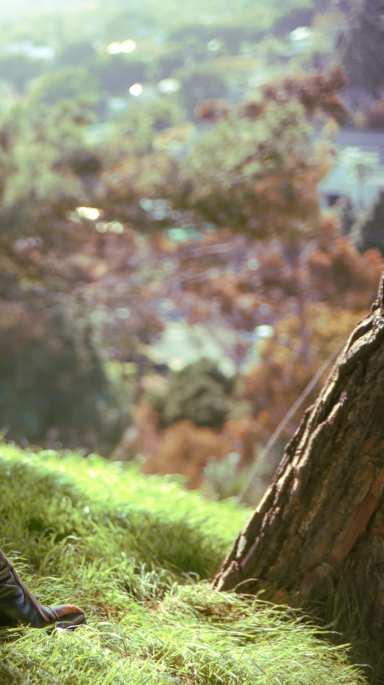





















Yeah, nothing.











Zorn wanted to experiment with something.
He wanted to know how long he could stay angry.
Originally, he just wanted to rage at someone at work, but after two days, he found out he had completely forgotten about being mad at him. He discovered the fact when he went to work on a bright Friday morning –bumping into the person in the elevator with a smiling face.
“Morning!” said the man.
“Oh, morning. How are you?” said Zorn, smiling. Until he froze.
He suddenly remembered what had happened two days ago. He became angry, again. But he couldn’t show it in that cramped elevator, which made him even angrier – he couldn’t be even angry whenever he wanted to!
So Zorn decided: he wanted to rage at his will. But he had to find something he could get angry at, something long-lasting, something permanent.
The first thing he did was to quit his work. He knew that work was a place that restricted his temper. Always frustrated about how his manager made him overwork, how his team members judged him, how everything had to be done according to policies. He held his
Writtenby AliceFan
DesignedBY CiciFang
temper, again and again, until that Friday morning.
It took him less than an hour to write the resignation letter. It was still properly written –the last time he would care about his face. He even put “Sincerely” at the end, not the usual “Best regards”.
Three days later, Zorn stepped on his rage trip, using last quarter’s bonus. He always wanted to try one of those things that happened in TV shows – buying a flight ticket in person at the counter. It worked, except the closest flight was heading to Reykjavik, Iceland.
Zorn knew nothing about Iceland, he couldn’t even pronounce the word “Reykjavik.”

So he raged – he swore, using words that he never thought he knew – first rage of the trip! He was satisfied with the speedy progress.
But when he landed in the country, he doubted his decision. It was so quiet and dead. Nothing like the consistent, ongoing horns in New York City or the distant mumbling of his colleagues – it was grey. Grey in the way that it felt almost peaceful.
Zorn shook his head, trying to kick the serene and calm mentality out of his head. He came to rage.




Soon enough, he found a blasting fuse – buses. He had been waiting at the airport terminal for more than 20 minutes. Maybe it would have been irritating if it happened at a subway station in New York, but this was Rey-Kia-Vik (even though he still knew nothing about the city). So he raged again. This time physically – he kicked his luggage and stamped on the wet ground, splashing droplets on people around him.
Suddenly, he felt some stares around him, which made him stop his actions immediately. He slowly turned around and said in a low voice, “My bad.”
He was ashamed. Zorn knew he wasn’t ready yet – it was a bit too deliberate.
So, he told himself, Maybe next time I will do better.
Finally, the bus came. He squeezed through the line, ignoring everyone else’s gaze, and hopped on the bus.

behind him. She was loud. Not sure if she was from China, Korea, or Japan, she was speaking some language he couldn’t understand and yelling whenever they passed a fluffy sheep.
So, Zorn raged. This time, he was brave enough to look directly into the lady’s eyes; he even stood up from his seat, “Can you shut up, please?”
The lady seemed confused. So, Zorn worked up his courage and said with more conviction,
“Shut up!”
The lady still looked baffled but sat back quietly.
Returning to his seat, Zorn felt proud – a sense he hadn’t experienced for more than a decade. He didn’t know being angry could bring him so much joy. He was starting to enjoy it.
In the remainder of the trip, he “reminded” the lady a few more times. He stood up every time from his seat, higher than the previous time. He always noticed the cold stare from the driver after he sat back down, but he ignored it – a silent way to express rage.
For a moment, he hesitated – which seat should I take? The last row belonged to the coolest kids, according to his middle school memory, the middle belonged to some no-names, and the front belonged to top students. He wanted to sit in the front row because he was never a top student, and he was too tired to walk all the way to the back.
Shortly after sitting down, he spotted another source of rage – the lady sitting right

Zorn was happy. He wanted to rage more. More loudly, more drastically, more unconditionally.





He picked the next spot to be the Black Sand Beach. People say it’s an alien place – black sand left after volcanic explosions. Zorn thought this was the ultimate anger from nature. No one expected it, no one could have controlled it, and no one looked after the aftermath of it.
He knew this was the place to unleash the moment his feet came in touch with the sands. They were little, solid stones, unlike the cute, round cobblestones in a European city – they were full of rage. As if the explosion of heat chose to linger on them, the stone went against his feet. For every step, Zorn felt like an invisible force was pushing him to keep marching forward.
Little by little, Zorn reached the waves.
He looked up to the sky – it was grey still. It was also pouring, something he realized after raindrops hit his eyes so aggressively. But he couldn’t care less. It was all part of nature’s anger, something he aspired to.
Feeling the waves slamming his feet and wind slapping his face, Zorn felt he was becoming the anger itself. The stones underneath were helping him to ascend, the rains were lifting him to the deep mountains.
For a second, Zorn thought he heard some indistinguishable noises around him telling him to stop. But Zorn couldn’t, how could he? He was at the peak of his anger.
The biting cold from above and below, the bone-deep harsh memories haunting him from his life – there was no stopping.
Gradually, Zorn felt the water submerged his feet. First through the polyester layer of his shoes, then his socks, and finally, his feet. It was cold but frenzied. He could almost feel the formation of water. From one drop to a handful, now a wave that hit him relentlessly. This was the anger from nature, Zorn thought. It didn’t care about how he felt; why should it?
The rains poured fearlessly that a sheet of mist emerged around him. The sea he was seeing earlier had now disappeared, leaving only grey and vapor. He started to truly feel the caress of anger from nature as he slowly lost his sight. Nature had the power to blind people.
Suddenly, he heard another voice, this time more clearly than the last time. It was the lady he yelled at on the bus. The voice with the same thick accent pierced through the rain, “Come back!” Perhaps the rain and water had somehow penetrated his ears; he was wishing for some warmth from the outside. And for some reason, the lady’s voice sent some heat through the mist. Zorn enjoyed it for a moment, but as he wanted to immerse more deeply, the sound vanished again.
The next moment, Zorn saw himself watching the waves coming from above – his body was fully submerged by the water. From this angle, nature’s anger revealed its true form – unstoppable, invasive, and menacing.
The waves came, wave by wave. One was higher than the other, each pounding Zorn’s face mercilessly as if it wanted to crush him and then devour him. It didn’t take long for Zorn’s mouth to fill with salty water. He had no choice but to gulp it down.
Zorn licked inside his mouth and tasted the granular salt that remained on the membrane. It first tickled his tongue and then ignited it. A wave of heat trickled through the tip and went into his body. He was no longer cold. The fire lit up inside him and banished the damp.
Zorn felt nature transformed him into sublime – a mixture of the earthy and the divine. Indeed, he was yet as angry as nature, but he sensed the potential to coalesce through the flaring fire. A form that he and the sea merged into one, sucking every living and moving element around him, to build a new Zorn, Zorn.




















03-18-22













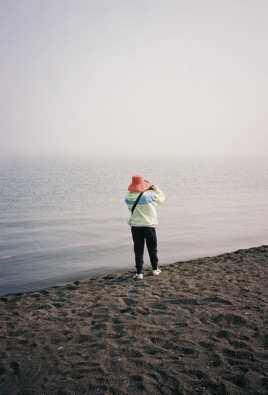
07-01-23
Black Beach, Silver Bay MN


11-30-24 LA Memorial Coliseum








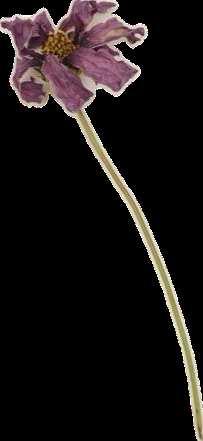



12-06-24
The Huntington










02-15-25


WRITTEN BY: EMMA SUN
DESIGNED BY: MINA JUNG



and half-melted Slurpees, bits of ice gasping for air before drowning in artificial blue. The rotor must have stopped churning when the power went out, which was when the grid collapsed, which was when the whole world heaved a great sigh and folded inward to reveal what everyone knew all along: we’d tripped past death and were free-falling into active decay.
Dammit. I frown and kick one of the machines, dirt on dust on rust.
That isn’t your PC, you know. You’re picking through a selection of chip bags, squinting at the labels before weighing each one in your hands. You can’t hit it until it works.
WHAM!
See?
Fucking smartass. I blow a strand of hair out of my face, feel its stickiness as it adheres back onto my cheek. Don’t tell me there aren’t any drinks here. Crouch. Palm to the glass of a lukewarm fridge. It hums, trembling with electric song, or perhaps just the ghost of one, fingertip-pulses mistaken for a phantom memory.
Swallowing does little to stir the sludge of sawdust and spit coating the inside of my throat, ugh, and if I were slightly more dramatic I may start hacking my guts out all over cracked linoleum. I wonder if the dehydration or the lack of nutrition is gonna get me first. Maybe my teeth will fall out ‘cause of scurvy, if that’s even how scurvy works. What can I even eat without teeth? Without chewing?
Expired applesauce, or Starburst?
A small mound of candy sits in your palm. Several plastic bags swing from your wrist. A receipt pokes out from one of them. This snags itself on my fingers, on a question—
So what if I still paid for food? Just because there isn’t anyone working here right now doesn’t mean we can steal. You cross your arms, suddenly defensive. The world going kaput has nothing to do with us losing our morals. The rules still exist.
My jaw works around a Starburst. Of course—silly me, how could I think otherwise? Even when we are nothing but bones in an apocalypse, the rules still run through our marrow.



—sometimes it’s more fun to break them. You didn’t let me drive the car straight through the front window the way people do in the movies, so I settle for watching a rock do the heavy lifting instead.
You’re actually insane, You groan. What’s the matter with you?
We’ve been driving long enough for me to know that you don’t want an actual answer to your question.
I hop through the hole and unlock the front door so you can come in the way you want. Gingerly, you step around broken glass, then level your best frown at the offensively tacky signs telling you to go RIGHT THIS WAY! for the best roadside attractions this side of route 95, and I wonder why you hate this sad little sinkhole so much. Sure, it’s a waste of time and money, but it’s not like either of those are particularly valuable in an apocalypse anyway.
Well, congrats, we’re here now. Let’s go look at the world’s largest ball of string and then get out of here.
How gracious. It’s almost as if you don’t want to be here, as if you have better things to do than wander through a menagerie of taxidermied animals. I pat a coyote as you shuffle past a mob of meerkats, each frozen in varying states of rigor even after



(Time is stopped here. Does that make you uncomfortable?)
Even in the middle of the desert there’s a shadow that chases at your heels, rushes you to do more, be more, because you can, will, and must. I know because I see you looking over your shoulder sometimes. There’s a confession in the way you haven’t stopped moving since we entered. If your fingers aren’t twitching, your foot is tapping out the seconds as they flow by. The desert is just one big hourglass to you, isn’t it? Eternity is buried somewhere beneath these dunes, sleeping with the bones of


Their jaws rattle with laughter. Who will
When else will we get to say we own the world’s largest ball of string? Now stop looking at me like that. You gonna help me roll it out to the trunk or what?




Descent Magazine

Smoke blooms from the hood, petal-soft and velveteen.
Like a pistil rising from the flower’s center, your face emerges from the cloud, smudged, penciled in graphite. You tilt your head this way and that, one hand under your chin, brow tense with consideration. You lean back. Then forward. Then one hand reaches out to poke something— spark!—and you withdraw with a hiss, blowing on your fingers.
They’d been at ten and two not too long ago, white knuckling it down the empty ribbon of the highway, all the way to the horizon. Even as your voice grew thorny, your hands stayed firmly on the wheel, blinkers on in a wasteland.
When you feel like helping, let me know.
I am helping. I’m sitting far, far away from the wreck, crisscross applesauce, hands twisting in my lap. My limits are clearly delineated. This is red ink on white paper, all the signs saying STOP.
DO NOT TOUCH. HAVEN’T YOU DONE ENOUGH? FRAGILE. HANDLE WITH CARE, CLUMSY, CLUMSY—ARE YOU TAKING THIS SERIOUSLY AT ALL? PROCEED WITH CAUTION. I TOLD YOU, DIDN’T I? YOU’RE NO GOOD AT THIS. YIELD. GOD, YOU’RE HOPELESS. ARE YOU EVEN LISTENING TO ME? HEY!


You yelled something but in my head I was already flying far, far away, compass pointed straight toward that expanse of perfect blue. Sand in my sneakers. Sand in my throat. Heaven on the horizon. I started running.
Look, in retrospect, I was pretty stupid. You make sure to drill that into my head now, when you tackle me to the slope and we nearly roll through a patch of prickly pear cacti, spitting, dizzy with delirium. Your voice is more choked than usual.
What were you thinking? Were you even thinking?
This again.
In the distance, the oasis glints, sunlight off a knife’s edge. Hypothetically, I could ask you to follow me. I could swear on the eleven pink Starbursts in my pockets that if we ran far enough, fast enough, we could reach the border where the dunes wash against the waves, where the crystalline pools await our needy mouths, our trembling hands.
Instead, I slap your hands away and try to wriggle out from under you. My jaw’s sore from gritting my teeth, grinding sand to powder. Even if I can speak, there’s nothing I can say that would make sense to you.
Stop—don’t—
God, I know! I’ve heard it all before. When I look up into your face, the sun’s a halo, and aren’t you really just a golden child? The one who stands at the pinnacle of excellence, eyes trained on the destiny glittering on your horizon, eyes staring far above the heads of the ones who scrabble in the muck below. Eyes that don’t leave mine, salting with—tears?
Please! Sorry, sorry, whatever I did, I’m sorry! I can fix it, I’ll be better, just don’t—please don’t go.
It’s raining in the desert. Your fingers grab at my shirt as you plead to me, to someone else’s ghost, an overdue elegy for an absent ear. Breath wheezes into the faraway sky, that pupiless eye that peers down, and, finding nothing of interest, carries on.
A cloud wanders by. Your halo disappears.

Imagine a never-ending tea party. Flower-like cups, forever full; all the tiny sandwiches and pastries you could ever eat.
Behind your eyelids: the marriage of indulgence and sophistication in the garden of plenty.
And I was still so hungry—so goddamned hungry. And it was embarrassing to have to keep reaching for food and drink when I’d already taken so many, even when I knew that the table would never be empty, because no one else was like me. The other people were finishing their cups. They could stand from their seats and gracefully step away, those flower people. They were satisfied with their fill; they knew the trick. I had to keep waiting.
I just kept thinking: maybe I’ll be next. It’ll be my turn soon—to be graceful and to not want and to bloom into a flower like the rest of them—but it wasn’t, it never was, and the more I sat there the more I could feel my chances slipping away. But it couldn’t be, because this was promised to me, a certain fate. So— surely, it’ll be me next. That’s what I was thinking the entire time as I kept eating, eating, eating.
And then?
And then I woke up. I was still hungry.
You shift, the settling dusk purpling your cheek like a bruise. I can’t see your face from my angle but I can imagine you scrunching your nose as if you were trying to keep in a sneeze and not the heartbreak of our situation, the situation that does not belong to us the same way our futures do not seem to belong either.
The heart shatters against the ribcage, anyway.
Why are we doing this?
There’s an answer to your question and there’s an answer to your question. One of those is: at the end of the world, the sky is one of the few things we can pretend hasn’t changed. Might as well take a good, long look at it before we can’t. Before we go.
You make a face. You know what I mean.
The secret fear that dries your mouth, turns it into a desert: what if this is it? What if there is no big finale, no destiny realized, no superbloom?
Then, we’ll have Starbursts. The world’s largest ball of string, peeking from the trunk of our car that exploded but then un-exploded itself long enough to get us here, to this endless tea party with all these constellations. You might still be hungry, but that’s okay if you’re eating for yourself and not a ghost. And about my shirt, which is still wrinkled because of your ironclad grip: if you’re listening, I forgive you. I hear you.

VI. THIS IS A
ROADTRIP TO THE END OF THE WORLD.
I was surprised you agreed to come at all, but here we are with our hair in the wind, the sun in our eyes. You laugh as you crunch on a chip, then slap my hands away from the radio where I’ve been fiddling with the knobs, riding the static through the dunes. Fuzzy dice swing clear of red rock ridges and into the blue; we crest a hill—then the world, oh the world! Everything unfurls before us, and somewhere out there, a superbloom awaits.
Heart in our throats. Foot on the gas. Ready?
Photographs by Jason ChenDesigned by Hoonbin Yoo












writing



after it had cooled, i poured the froth over my body and massaged it into my hair. i saved the best bit of foam in a spare flask. cleansing has to occur both inside and out, and the signs told me it’s best served chilled with a splash of gin and a sprig of rosemary. i’m certainly not one to complain. cheers to hard work!
The cleansing left me with nothing but questions. Fears, those schematic devils crawling on my body. Maybe it was the gin, or the calcium. i have to be living. Right?
Yes, yes i am living but i’m doing it all wrong. all wrong, all wrong.











WrittenbySageMurthy

Saturdaymorning,10:17am,
A little girl, no older than 11, clambers into the backseat of the car by herself, hurls her backpack into the other seat, and shuts the door loudly. She is calling someone on a phone that is way too big for her small hands.
“Yeah, practice was good. I’m in the Uber now,” she says as she examines the dirt on her knees. There is a pause as she listens, then responds, “Will you take me to my game next week?”
Some quiet mumbling can be heard from the phone call. The girl frowns and says, “Yeah, we can talk about it later. Love you.” She hangs up and stares out the window, eerily quiet.
There is silence for the next couple minutes as she switches between staring out the window and looking down at her slightly dirty hands. The driver decides ask, “Are you coming back from soccer practice?”
She perks up, before visibly reigning it in, and says, “Yes.”
“How did you play today?”
“Good! But I crashed into this one girl and got dirt all over myself.”
“Are you okay?”
She giggles, “Yeah, it happens a lot. But I’m tough!”
He nods, keeping his eyes on the road, “That’s good.”
“Yeah, but Coach says I need to pay more attention because we have a game next week and he doesn’t want me to accidentally foul someone. But I am paying attention, it’s just that everyone is moving really fast,” her words are flowing faster, now.
“Do you think you’ll win next week?”
“Yes. I think so. My team is really good, especially Sarah because she’s super fast. But I’m second fastest. The team we’re playing against is not fast.”
“I see, well, that’s good then.”
“Yeah, and we aren’t just fast, Millie is a really good goalie—nothing can get past her...” She continues talking about the other girls on her team, beaming with joy, and the driver nods in response for the next while until they get to her destination.


Descent Magazine
Saturdaynoon,12:21pm,ahomeinMontereyPark
A young man, probably early twenties, gets into the car with Trader Joe’s bouquet in hand. He sits and gently places the flowers on the seat next to him. As the first few minutes pass, he keeps checking his watch over and over again.
The driver looks into the rearview and says, “Do you need me to drive faster?” His head shoots up from looking at his watch another time, “Huh?”
“Are you late to something?”
“Oh, no. I’m just nervous. Sorry.”
The driver hums in response and focuses on the road again, but out of the corner of his eye the rider make prolonged, uncomfortable, and expectant eye contact with him in the mirror. The driver then asks, “What are you nervous for?”
The man’s body visibly relaxes. “I’m going on a second date with this girl. I like her a lot. I just want to do everything right.”
“Flowers are always a good step,” the driver responds.
The man laughs, “Yeah, I was asking my sister about it because I was worried it’s too soon to get this girl something but she said she will appreciate it.”
The driver nods. The man continues, “I purposely picked some that were not fully bloomed so they last longer.”
“Did your sister advise you for that part, too?” The driver raised an eyebrow.
“Oh, no. I feel down this YouTube rabbithole of bouquet making. But I felt like making a bouquet would definitely be a little too intense for the second date,” he laughed.

“I would agree with that.”
“It’s in the early stages, I know. It’s just been a while since I’ve been interested in someone. I’m really excited for something new.”


Saturdayafternoon,2:13pm,
Two young women, probably in their mid-to-late twenties, shuffle into the backseat, already alight with conversation. One of them has short brown hair, and the other has thick black hair slicked back into a ponytail.
“—insane that he would say something like that,” the brunette girl says.
“No, yeah. How has he not matured past the age of eighteen?” the girl with the ponytail scoffs.
“Seriously.”
“Poor Vivienne. Does she not get insecure when he talks to her like that?”
“That’s what I’m wondering too! And Vivienne was telling me that he did shrooms with his older brother a bit ago. Which, first of all, that’s crazy. I didn’t know he and his brother were close like that. And second of all, he told her afterwards that during the trip he realized that he’s mean to her sometimes without meaning to be,” the brunette girl gestures wildly.
“No shit, Sherlock. God, she needs to leave him,” the girl with the ponytail massages the bridge of her nose in frustration.
“I KNOW. But they’ve been together for so long that I don’t think she even considers that an option anymore.”
“She was probably happy that he noticed, even if it took him eight years. Natalie, if I’m ever delusional
like this you need to smack me.”
The brunette girl, Natalie, laughs and says, “You would never be in this situation— high school sweethearts are another breed of relationship. How’s it going with that girl, by the way?”
The other girl shrugs, “It was fine, we went out a couple more times but we haven’t seen each other in a minute because my new job got busy. You?”
“Oh, God no. Having a dog is already enough of a responsibility.” They both laugh.
“To be honest, Ollie is probably way cuter than any guy,” the ponytail girl says.
“True that,” Natalie says as the driver pulls over on a residential road.
“Natalie? Is this your drop-off?” The driver finally speaks, looking at her in the rearview mirror.
“Yes, thank you,” she grabs her small red-leather purse and slings it over her shoulder, “since you live so close now, we need to hang out more.”
“I totally agree, I’ll text you,” the other girl smiled wide.
Natalie shuffled out of the car. The other girl started scrolling on her phone and the rest of the ride continued in silence.


Descent Magazine
Saturdayevening,6:32pm,TheLanghamHuntingtonhotelinPasadena
A man, early thirties, climbs into the front seat of the car for some reason, even though the rest of the back seats are empty. The driver raises an eyebrow at him, but doesn’t say anything about it. The man is carrying a little blue gift bag and is talking to someone on the phone.
“—is she gonna be there soon? I shoulda left earlier, fuck.” A pause, and all that can be heard is the faint mumbling from the person on the other side of the phone. Then, the man responds: “Yeah. I’ll see you soon.”
He hangs up the phone and sighs loudly, before turning his body toward the driver, who slides his eyes off the road to look back at him.
“Have you ever been to a baby shower?” He asks.
The driver nods his head, and says, “Yeah, a few.”
“What did you bring as a gift?”
“Mm...” The driver thought for a second, “Usually diapers and wipes, maybe some toys.”
“Aw, shit,” he said as he looked into the small blue bag.
“What did you bring?” The driver glanced curiously over at the bag.
He pulled out a dark blue baseball cap with some kind of orange cartoon character on it. The
man cringed, “The Amazon listing said it would be a kid’s size, but it’s definitely not small enough for a baby.”
“Who’s the character?”
“Oh! My buddy and I were in the same TKE pledge class at Syracuse. So this little guy is the mascot— Otto the Orange.”
The driver let out a short laugh, “Your mascot is a fruit?”
The man laughed too, “Everyone always says that. But yes.”
“If it’s your alma mater, that’s a sweet gift.”



The man sighed at that, “Yeah, but I’m supposed to be this kid’s Godfather, man. And my only gift is a hat that won’t fit him. I realized earlier that I should have gotten some practical stuff too. But I’m already running late.”
“When does the shower start?”
“Technically it starts at seven, but we’re surprising his wife, so we were supposed to get there by six-thirty.”
“Oh,” the driver makes a face and checks his phone. The time is 6:41. “Do you need me to drive faster?”
“No It’s probably fine,” the man’s phone dings with a text notification and he looks down to check it. He presses his lips into a thin line and says, “Actually, step on it. My buddy is going to murder me. ”
Superbloom
Saturdaynight,9:15pm,RalphsgrocerystoreinSouthPasadena
An older lady, probably around the age of seventy, climbs into the back seat of the car, carrying a couple plastic bags of groceries. A bouquet of pink flowers sticks out from one of the bags—it’s slightly wilted. After she settles into her seat, she says, “Hi Daniel, how are you?”

The driver startles for a second, before remembering that his name is shared with all the riders, “I’m doing alright. How are you?”
“I’m well, thank you,” she smiles. “How long have you been driving today?”
“On and off all day, since the morning,” he says, keeping his eyes on the road.
“Oh goodness, you must be tired.”
“Only a little. I like feeling busy.”
“Do you live nearby, Daniel?” She tilts her head.
“I live in Monterey Park, pretty close by.”
“Ah, that’s good. I hope you get to go home soon and rest. It’s already getting late.”
The driver smiles, “What are you doing at this hour?”
She beams, “My children and grandchildren are home this weekend for a little family reunion, but I forgot just how much they can eat. I needed to get more groceries for tomorrow.”
He hums in response, then asks, “And what about the flowers?”
“Oh, those are just for fun. When I buy groceries I like to treat myself a little.”
“How many bouquets are left at this time of night?” He asks.
“Not many, but I don’t mind getting the last pick of the day. I like giving them a little love and seeing them come back to life in the morning.”
“That feels very profound.”
She laughs at that, “I don’t get that a lot.”
He frowns a bit, and says, “I feel like older generations always have very profound things to share.”
“That’s very sweet, thank you Daniel,” she smiles again.
“Do you take Ubers a lot?” He asks.
“Mm, only at night because my eyesight makes it hard to drive. But I love talking to Uber drivers, so it’s a little adventure to get to take one every now and then.”
“I hope I’ve lived up to the expectations,” he laughs. She smiles, warm, “No expectations, dear. It’s always a pleasure to connect with someone, even for ten minutes.”
2

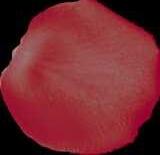









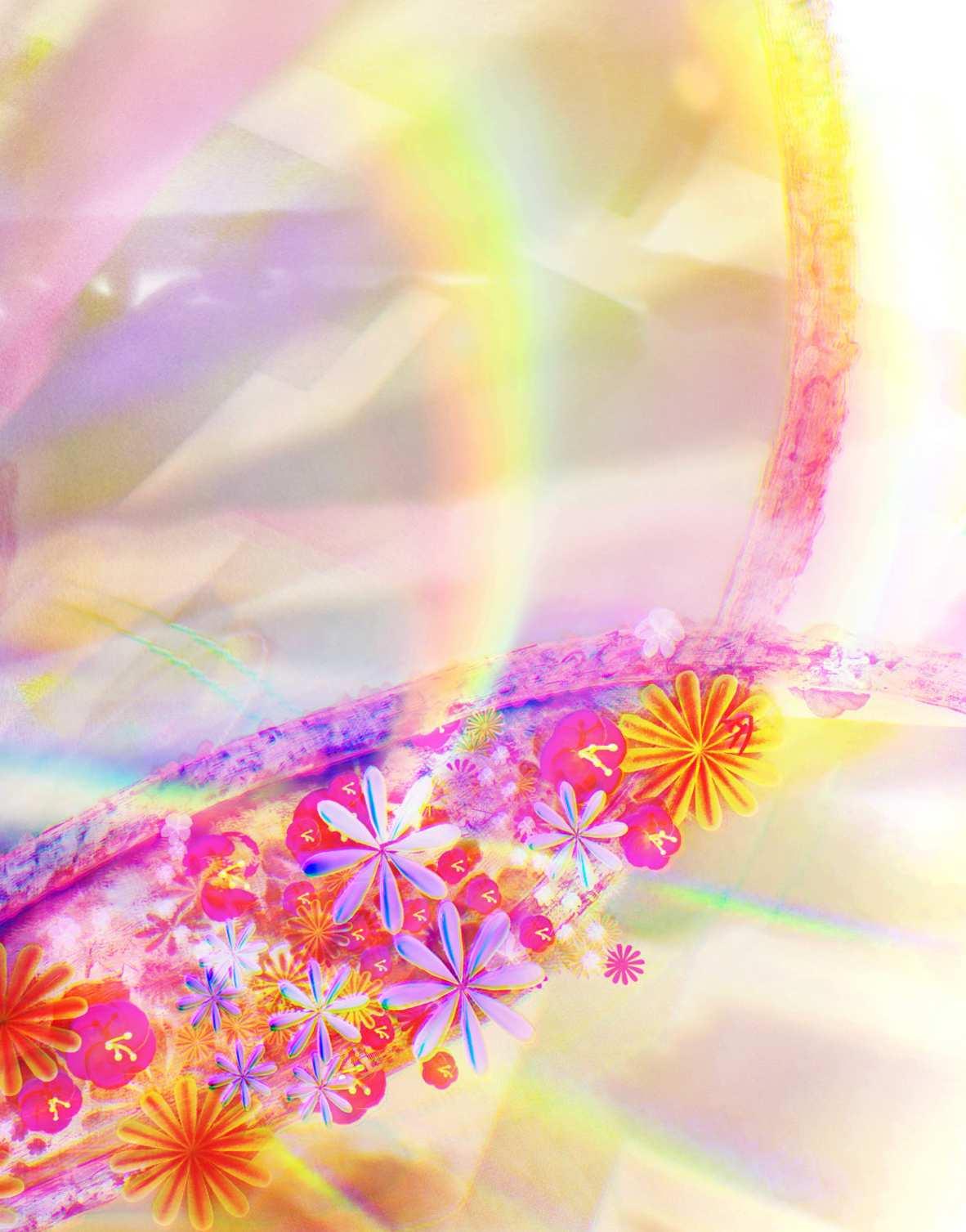












































BacolodisthecapitalcityoftheislandofNegrosOccidental,aFilipinoprovincenamedbySpanishconquerorsfortheforthe darkskinofitsinhabitants.Upontheirarrivalintheeigh- intheeighteenthcentury,earlymissionariesquicklyplacedthevillage teenthcentury, undertheprotectionofSaintSebastian,anditwasdeemed ofSaintSebastian,anditwasdeemed Bacólod,theoldIlonggowordfor“hill”.Theremainsoftheir churchesstilllitterthecountryside,andliketherestofthe Philippines,thetownisdeeplyCatholic;thedenseairof religiositywasmysecondimpressionofBacolod,the昀椀rst religiositywasmy beingitsfertile,dark-redsoil.
Mygrandmother,bornandraisedbytheisland’ssugarcane My bornandraised 昀椀elds,isaveryreligiouswoman.Everychildofhergener-









ationgrewupduringWW2,whenmygreat-grandfather, adentist,lefthisjobinthecityandtookhisfamilytothe mountainsofPatag,wheretheyhidandfoughtagainstJap- mountainsof aneseinvadersforfouryears.Shehadn’tbeenbacktotheir anese forfour Shehadn’tbeenbacktotheir campgroundsuntilthissummer,andwediscoveredaresort inplaceofthetentsandwildjunglesheremembered.
WearrivedinBacolodweeksafterMountKanlaon,thetallestmountaininNegros,erupted,spewinglahar–a昀氀owing mixofrock,water,andpyroclasticdebris–ontothesur- mixofrock, roundingtownsand昀椀elds.Wetookthehourlong昀氀ightfrom Manila,myhometown,toaccompanymygrandmother’s Manila,myhometown,to my visittohersister,anunatoneoftheisland’sconvents.



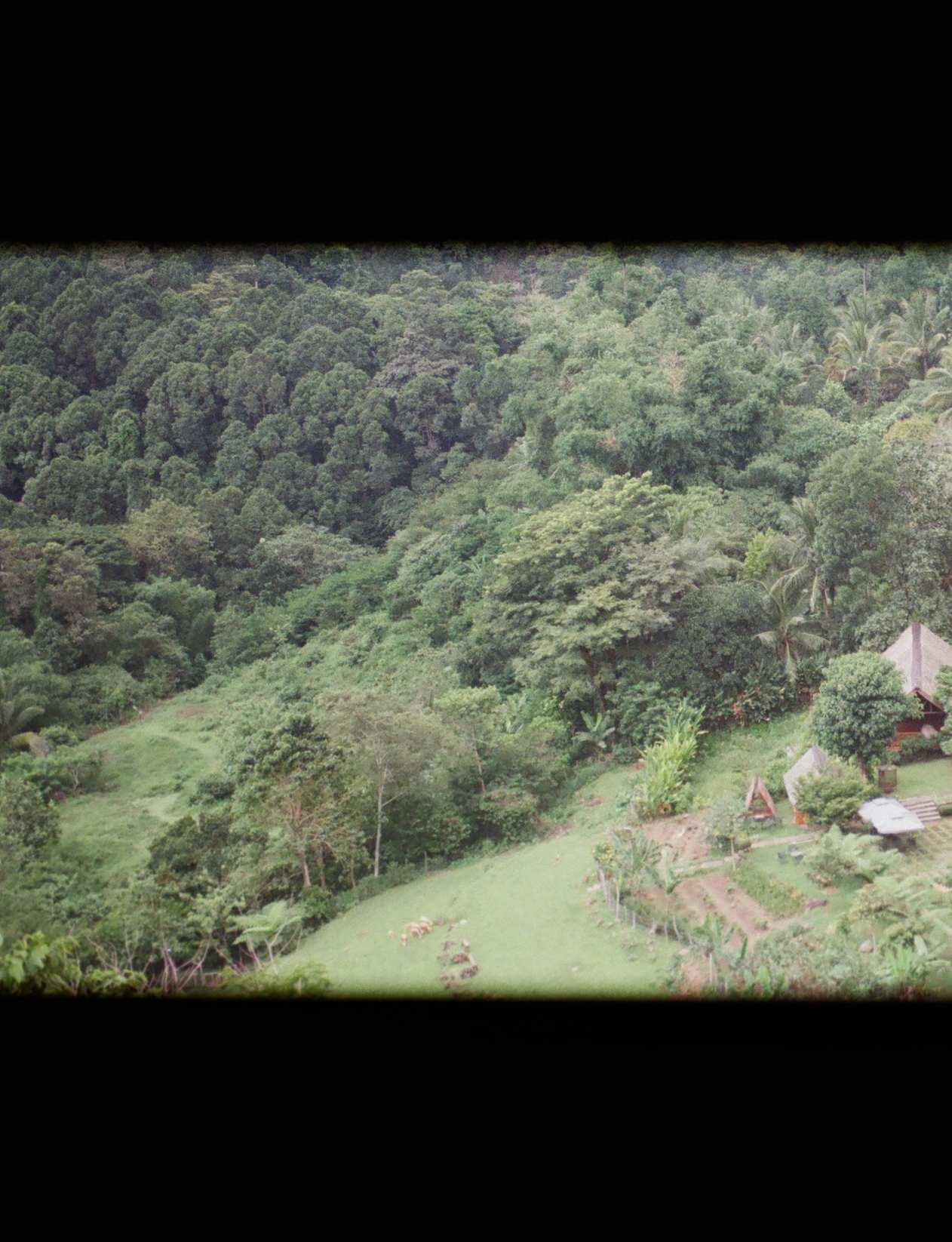





PicturedhereisachurchnearKanlaon,wherewejoinedmy Picturedhereisachurch great-auntincommunityservice.Thetown’ssupplychains weredisruptedbythepyroclastic昀氀ow,andasisoftenthe andasisoftenthe casebackhome,wherepoliticiansandlegislatorsfail,local case fail,local churchesstepin.Thechurchwasn’tliketheManilacathe- wasn’tliketheManilacathedralsI’dbeendraggedtogrowingup–itwasloudandcha- dralsI’dbeen togrowingup–it loudandchaotic,andkidsandstraydogsplayedfreelyby昀氀owersand otic,andkidsand freelyby昀氀owersand pavement.
I’dalreadyreturnedtoLAwhenafewmonthslater,Mount I’d Kanlaoneruptedoncemore.“Lahariscoveringalltheplaces wesaw,”mygrandmothersaidoverthephone,“pleasepray wesaw,”my pray forthem”.Localnewsreportedthesightofanincandescent







plumeofsmoke,5,000meterstall,risingslowlyabovethe tall,risingslowlyabovethe volcano.Ash,rocks,and11,000tonsofsulfurdioxidefellina four-kilometerradius.Thechurchwevisitedwascoveredin blackdust.Manyweredisplaced,andmanywereevacuated. Butmiraculously,therewerenocasualties. But therewerenocasualties.
isthecapitalcityoftheislandofNegrosOccidental,aFilipinoprovincenamedbySpanishconquerorsforthedarkskin forthedarkskin ofitsinhabitants.Upontheirarrivalintheeighteenthcentu- intheeighteenthcentury,earlyaliketherestofthePhilippines,thetownisdeeply ry, Catholic;thedenseairofreligiositywasmysecondimpres- Catholic;thedenseairofreligiositywasmy









sionofBacolod,the昀椀rstbeingitsfertile,dark-redsoil.isthe sionofBacolod,the capitalcityoftheislandofNegrosOccidental,aFilipino Negros provincenamedbySpanishconquerorsforthedarkskinof forthedarkskinof itsinhabitants.Upontheirarrivalintheeighteenthcentury, intheeighteenthcentury, earlyaliketherestofthePhilippines,thetownisdeeply Catholic;thedenseairofreligiositywasmysecondimpres- Catholic;thedenseairofreligiositywasmysecondimpressionofBacolod,the昀椀rstbeingitsfertile,dark-redsoil.isthe sionofBacolod,the capitalcityoftheislandofNegrosOccidental,aFilipino Negros provincenamedbySpanishconquerorsforthedarkskinof forthedarkskinof itsinhabitants.Upontheirarrivalintheeighteenthcentury, intheeighteenthcentury, earlyaliketherestofthePhilippines,thetownisdeeply Catholic;thedenseairofreligiositywasmysecondimpres- Catholic;thedenseairofreligiositywasmy sionofBacolod,the昀椀rstbeingitsfertile,dark-redsoil. sionofBacolod,the




Descent Magazine
Editors-In-Chief
Stella Vu
Lynn Wee
Sammie Yen
Jasmine Wan
Admin
Reyna Wan
Audrey Ma
Anika Zaman
Jamie Chiang
Aashi Agarwal
Communications & Social Media
Elianna Gamboa *
Cici He*
Erin Coghill
Camryn Kim
Alexandra Tan
Visual Design
Isabella Murray*
Molyka Duong*
Cici Fang
Grace Wu
Hoonbin Yoo
Lucy Chen
Michaela Chang
Mina Jung
Raina Paeper
Writing
Megan Dang
Aahana Chowdhuri
Alice Fan
Caroline Li
Emma Sun
Emma Yan
Hanna Liang
Rui Zhang
Sage Murthy
Sisi Li
Mulimedia
Aaron Ogawa*
Hannah Sakai*
Nicole Joseph*
Ashley Li
Avana Wang
Esther Jung
Janice Yoon
Jason Chen
Jessica Fu
Julia Wang
Nub-Petch Sinthunava
Sunny Cong
Xavier Siazon
Xin (Robynn) Shen
Senior Advisors
Isabelle Lim
Marissa Ding
Z Luo
Models & Crew
Jamie Kim (cover)
Willow Klute (cover)
Joy Jiang (cover)
Harley Chen
Aaron Ogawa
Elan Lee
Alexandra Tan
Julia Mao
Rebecca Pan
Minh Le
Renae Wang
Ben Thai
Jessica Fu
Marissa Ding
Jamie Chiang
Featured Brands & Creatives
Goodlight
Kuya Lord
Roast Duck Pa Ord
Liu’s Cafe
Otomisan
Mayura Indian Resturant
Ka Yan Tam
(@nomkakaii)
Special Thanks to KACE TEA
Kaya Press



* indicates team leads
